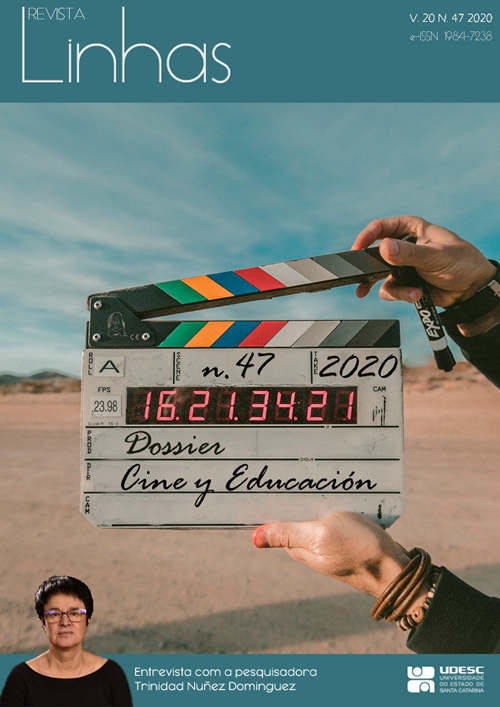An Analytical Approach to the Italian Renaissance through Popular TV: The case of Medici
DOI:
https://doi.org/10.5965/1984723821472020194Resumo
This article explores the educational value of using audiovisual media to enhance the learning of history and civilization in foreign language and culture classes. More specifically, it analyzes the pedagogical impact of learning about the Italian Renaissance through a television series about the Medici family, the most acclaimed patrons of the Renaissance. Focusing on the televised adaptation of this family, the article examines how media can revisit and reshape the history of this period through streaming television distribution, the important and highly popular internet-based delivery system of services such as Netflix, Hulu, HBO Go, Amazon Prime Video, YouTube TV, Sling TV, and Fubo TV. I argue that students can become conscious of the mechanisms of historical adaptation by considering their own learned perspectives, and by reshaping them through a highly dramatized and psychologically rooted narrative. Questioning students about the extent to which their understanding of the past is filtered or modified through popular culture—and about the way popular culture uses the past—leads them to think critically about historical continuity. The article pays specific attention to the two main characters in the series, entitled Medici: The Magnificent (2018): the hero, Lorenzo de’ Medici, and the villain, Jacopo Pazzi. An accurate historical and cinematic discussion of the two characters will allow me to elucidate the medium-specific potential of the TV series to teach historical facts. Drawing on a few courses I taught on Renaissance Italy, where I implemented this approach, I will demonstrate that students are not just entertained, but also actively engaged in the cognitive aspects barely to be found in written history, namely, the characters’ inner lives and struggles. The article will demonstrate that a comparison of the historical sources with their cinematic adaptation is of great pedagogical value for students.
Downloads
Downloads
Publicado
Como Citar
Edição
Seção
Licença
Os artigos publicados pela revista são de uso gratuito, destinados a aplicações educacionais e não comerciais. Os direitos autorais são todos cedidos à revista. Os artigos cujos autores são identificados representam a expressão do ponto de vista de seus autores e não a posição oficial da Revista Linhas ou do Programa de Pós-Graduação em Educação da Universidade do Estado de Santa Catarina.

A Revista Linhas está licenciada com uma Licença Creative Commons - Atribuição-NãoComercial-SemDerivações 4.0 Internacional.


